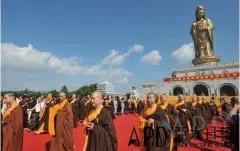Most speakers at the 68th UN General Assembly's annual General Debate on Wednesday referenced its theme featuring "The Post-2015 Development Agenda: Setting the Stage."
At the debate's opening Tuesday, General Assembly (GA) President John Ashe said the new framework, designed to follow the 2015 deadline of the Millennium Development Goals (MDGs), targeted poverty eradication, economic growth, equity, social inclusion and environmental sustainability.
"Adoption of the MDGs has represented a major shift in the ability of the United Nations to mobilize the global will to eradicate poverty and achieve sustainable development, thus clearly expressing the scope of success of the will of the international community and the feasibility of the global partnership," said Prime Minister Sheikh Jaber Al Mubarak Al Hamad Al Sabah of Kuwait, said. "However, the emergence of new major challenges are related either to security disruptions .. or to challenges related to steady environmental deterioration that threatens our world."
President Ricardo Martinelli Berrocal of Panama endorsed the theme when he said: "Nations have learned a lot about development. We have realized that development that is not sustainable is simply not development."
"For the first time in history, humanity possesses the technological, economic and socio-political structures to forever eradicate extreme poverty," he said.
President Ollanta Humala of Peru said: "The world changes, rearranges its agenda, actors emerge, and new scenarios appear in which the destiny of mankind is played out. Countries, peoples, we all have been affected by this rapid transformation. However, we note with concern that some substantial aspects have not changed."
"The Timorese people now hold, in their own hands, the full responsibility for the construction of their future," said Timor- Leste President Raur Matan Ruak, of his young island-nation's development outlook. "The country faces the challenges with high hopes and optimism."
"Africa is no longer a zone of turmoil and humanitarian emergencies. It has rather become an emerging pole of opportunities and investments for innovative and mutually beneficial partnerships," said another optimistic leader on development, President Macky Sall of Senegal.
Yet another African leader, looking to the future, President Slassane Ouattara of Cote d'Ivoire said, "We must adopt a global approach which will allow our countries to build more equitable models for sustainable development which respect our specific needs."
"The African continent, which is behind schedule with regard to the 2015 (Mdg) deadline, can all the same count on its growing weight in the world economy," he said.
The president of the Democratic Republic of Congo (DRC), Joseph Kabila, gave critical consideration to the successes and setbacks of the MDGs, blaming the "persistent selfishness" of several states, as well as the up and downs of the global economy.
Negative effects of globalization contributed to the food crisis, famine and health problems as well as to the destruction of the environment, demonstrating the need for advancing the sustainable development agenda, he said.
The president said he is committed to managing the DRC's natural resources, despite fighting in the east of the nation over its vast mineral wealth. However, security remained the most important prerequisite for development because without it, development was hypothetical.
Madagascar President Andry Nirina Rajoelina also was blunt and refrained from painting a rosy picture. He regretted that most people's picture of Africa was one of states mired in permanent violence, where democracy was in retreat, where there were greater divisions rather than consensus and where the natural environment was deteriorating.
Amid the generally unfavorable international economic climate, he said Madagascar has found it difficult to achieve the MDGs despite the best efforts of its leaders and people. But, he said, instead of losing hope, leaders of countries in a similar situation should concentrate more on what they could do better to help the collective international effort to improve the lives of the people.
However, Rajoelina said while he was looking forward to presidential elections next month for the start of a new phase in his country's history and grateful for international assistance, the president said he would not run.
President Blaise Compaore of Burkina Faso, also noted West Africa retained the stigma of multidimensional crises that had plagued the region for decades. But, he said, peace required development programs that provided real responses to the incertitude stemming from the poor economic situation.
Poor, landlocked, Burkina Faso seeks to boost growth for a better quality of life, he said. The GA Post-2015 theme raises the issue of the relationship between development, peace, and security and offers an opportunity to reflect on a new vision of global progress founded on strong international solidarity behind sustainable development.
President Tommy Esang Remengesau of the pacific island nation of Palau made a colorful link between climate change and sustainable development Wednesday evening when he told of leaving his backyard flooded by the ocean and typhoon after typhoon slamming Western Pacific regions.
"When I was a child my backyard did not flood and we did not have tropical storm after tropical storm pass through our Pacific Islands," he said. "The full moon and the ocean are no longer metaphors for balance and harmony."
"Today they represent imbalance from our past excesses and a lack of harmony due to our inability .. to create the world we want," Remengesau said. "The leaders and the peoples of the world certainly face many challenges moving forward to create the world we want and in developing a sustainable future."
 简体中文
简体中文

